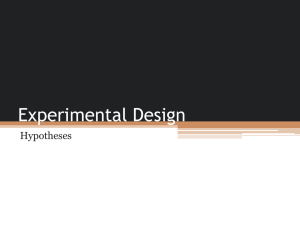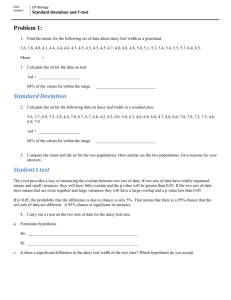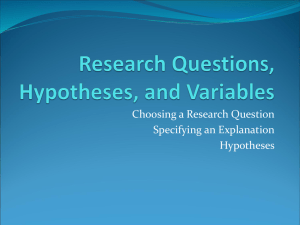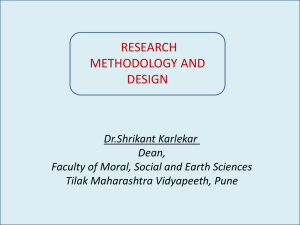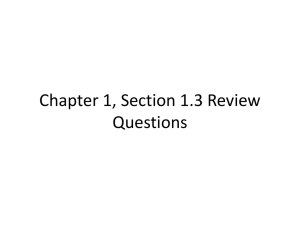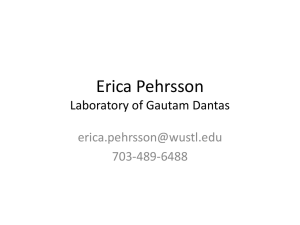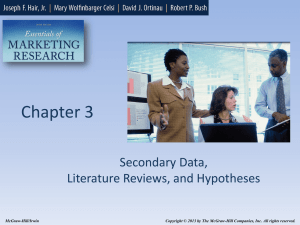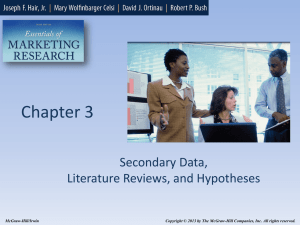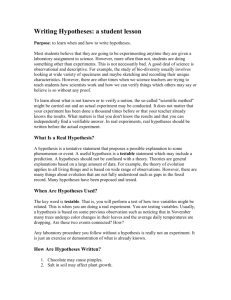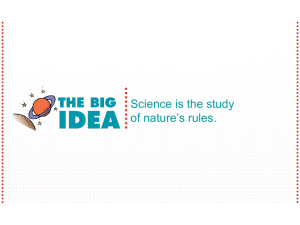Hypothesis Presentation - CPS-NASA
advertisement
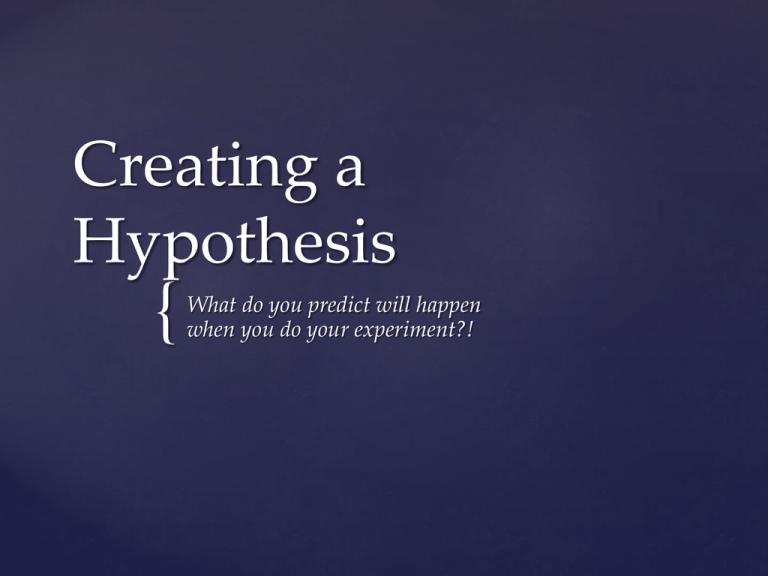
Creating a
Hypothesis
{
What do you predict will happen
when you do your experiment?!
Real hypotheses should be written
before the experiment!
It does not matter that your
experiment has been done a
thousand times before!
What matters is that you
don't know the results and
that you can independently
find a verifiable answer.
What does verifiable mean?
Real hypotheses should be written
before the experiment!
It does not matter that your
experiment has been done a
thousand times before!
What matters is that you
don't know the results and
that you can independently
find a verifiable answer.
Verifiable: capable of being tested (verified or falsified) by experiment or observation.
Real hypotheses should be written
before the experiment!
A hypothesis is a
statement that proposes a The key word is
possible explanation to
testable!
some phenomenon or
event.
A useful hypothesis is a
testable statement which
may include a prediction.
If … then …
Testing a Hypothesis
You will perform a
test of how two
variables might be
related.
This is when you
are doing a real
experiment.
You are testing
variables.
Previous Observations
Usually, a hypothesis is based on some
previous observation
For example:
In November many trees undergo color
changes in their leaves AND the average
daily temperatures are dropping.
Are these two events connected? How?
How are hypotheses written?
Chocolate may cause pimples.
Salt in soil may affect plant growth.
Plant growth may be affected by the color of the
light.
Bacterial growth may be affected by temperature.
Ultra violet light may cause skin cancer.
Temperature may cause leaves to change color.
Do you think that these statements make
good hypotheses?
The word MAY does not suggest how we
would prove these statements.
Chocolate may cause pimples.
Salt in soil may affect plant growth.
Plant growth may be affected by the color of the light.
Bacterial growth may be affected by temperature.
Ultra violet light may cause skin cancer.
Temperature may cause leaves to change color.
We need to create If… then… statements.
If… then… statements
Original:
Ultra violet light may cause skin cancer.
If… then…
If skin cancer is related to ultraviolet light , then people with
a high exposure to UV light will have a higher frequency of skin
cancer because…
Original:
Temperature may cause leaves to change color.
If… then…
If leaf color change is related to temperature , then exposing
plants to low temperatures will result in changes in leaf color
because…
Variables
If… then…
If skin cancer is related to ultraviolet light , then people with
a high exposure to UV light will have a higher frequency of skin
cancer because…
If… then…
If leaf color change is related to temperature , then exposing
plants to low temperatures will result in changes in leaf color
because…
DEPENDENT
VARIABLE
INDEPENDENT
VARIABLE
Variables
If… then…
If skin cancer is related to ultraviolet light , then people with
a high exposure to UV light will have a higher frequency of skin
cancer.
If… then…
If leaf color change is related to temperature , then exposing
plants to low temperatures will result in changes in leaf color.
DEPENDENT
VARIABLE
INDEPENDENT
VARIABLE
The variable that you observe
and measure the results
The variable that you
control and change.
Practice
Chocolate may cause pimples.
Salt in soil may affect plant growth.
Plant growth may be affected by the color of the light.
Bacterial growth may be affected by temperature.
Rewrite the first four hypotheses as
If… then… statements.
Single underline the dependent variable
and
double underline the independent variable.
Your hypothesis
Write the hypothesis for
your experiment as an
If… then… statement
using the worksheet.
Be sure to identify the dependent variable
and
the independent variable.

